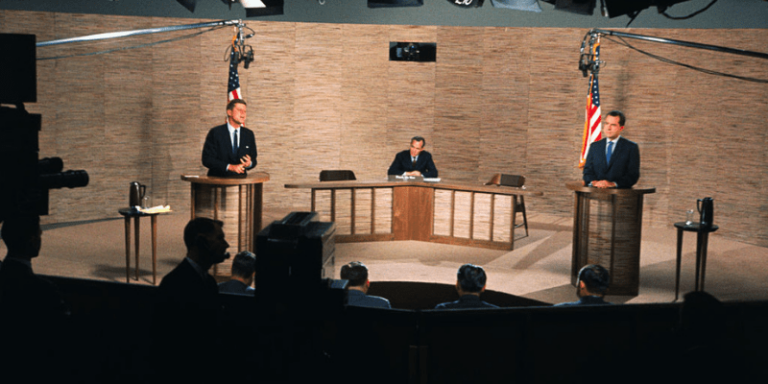American Elections: A History of Controversy
The 2020 election isn’t going very smoothly – but that’s nothing new.
By: Jose Backer | November 12, 2020 | 468 Words

Richard Nixon and John F. Kennedy during a debate (Getty Images)
Usually, presidential elections go smoothly, with a winner being declared immediately after Election Day. But, as we see now in 2020, that isn’t always the case. In fact, there have been several presidential elections throughout the nation’s history that suffered controversy and took a while to work out.
In 1800, Thomas Jefferson and Aaron Burr received the same number of votes in the Electoral College. This tie forced the House of Representatives to meet and vote to choose the winner. Instead of letting each representative vote for their preferred candidate, the representatives from each state teamed up in state delegations, each of which got one vote.
In 1860, Southern states wouldn’t accept Abraham Lincoln as their president. Eventually, these states seceded from the Union and the Civil War was fought over their choice to leave. To this day, 1860 remains the most extreme example of a constitutional crisis that occurs when a large group of people refuses to accept the winner of the presidential election.
In 1960, the presidential election between Republican Richard Nixon and Democrat John F. Kennedy was challenged by many Republicans who thought Kennedy had won because of election fraud. Eventually, Kennedy was accepted as the winner, as Nixon admitted defeat.

George W. Bush and Al Gore shaking hands. (Photo by Steve Liss/Getty Images)
The 2000 presidential election between Republican George W. Bush and Democrat Al Gore saw a dispute over the vote count. The main controversy occurred in Florida, a swing state, whose winner would decide the election.
Lawsuits were filed by the Gore campaign to begin hand recounts in Democratic counties, which the Bush campaign fought against. After Bush was finally declared Florida’s winner, Gore once again fought the results, and the Supreme Court eventually had to rule against the Gore campaign’s effort to contest Florida’s results.

Burbank City Clerk Judie Sarquiz displays a hanging chad. (Photo by Kirk McKoy/Los Angeles Times via Getty Images)
Other confusing ballots with punch holes not properly punched (called “hanging chads”) and the confusing “butterfly ballot” that mistakenly caused voters to vote for a third party candidate led to a huge national debate over the validity of the election. To top it all off, Al Gore had won the popular vote and lost out in the Electoral College vote, which had only happened a few times before in American history.
Attitudes from the 2000 election still resonate today, with many Americans believing that a Supreme Court case may once again decide the winner of the presidential election. Before the 2020 election, both Democrats and Republicans urged their candidates not to concede, especially with the uncertainty mass mail-in voting had brought. Despite the confusion, America has a procedure for the peaceful transition of power.
















